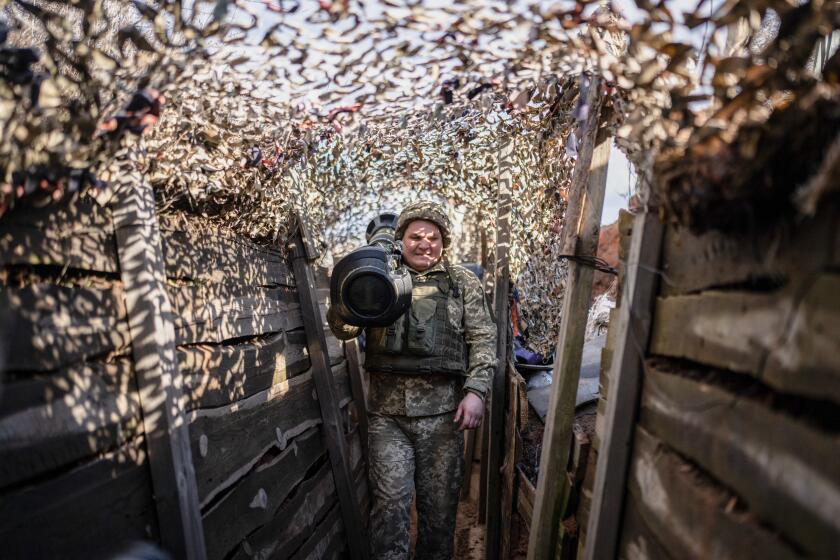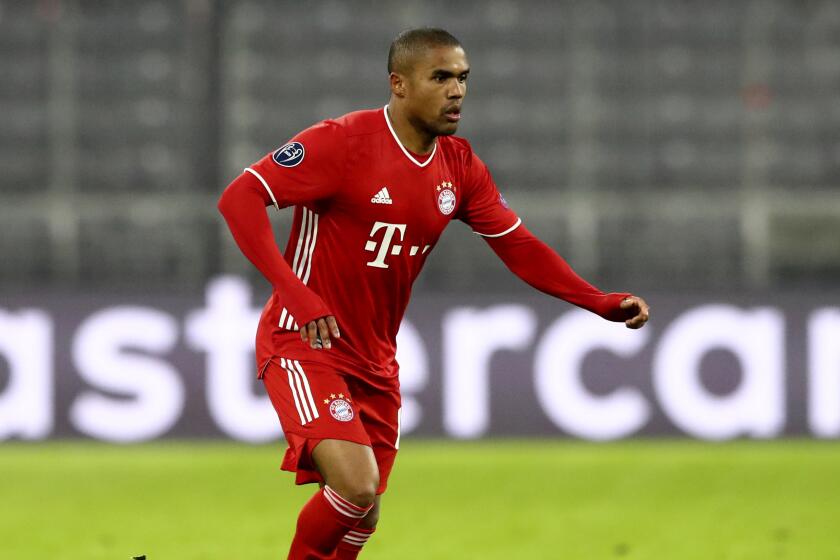Galaxy star Douglas Costa’s career took off in Ukraine. Now he fears for former home
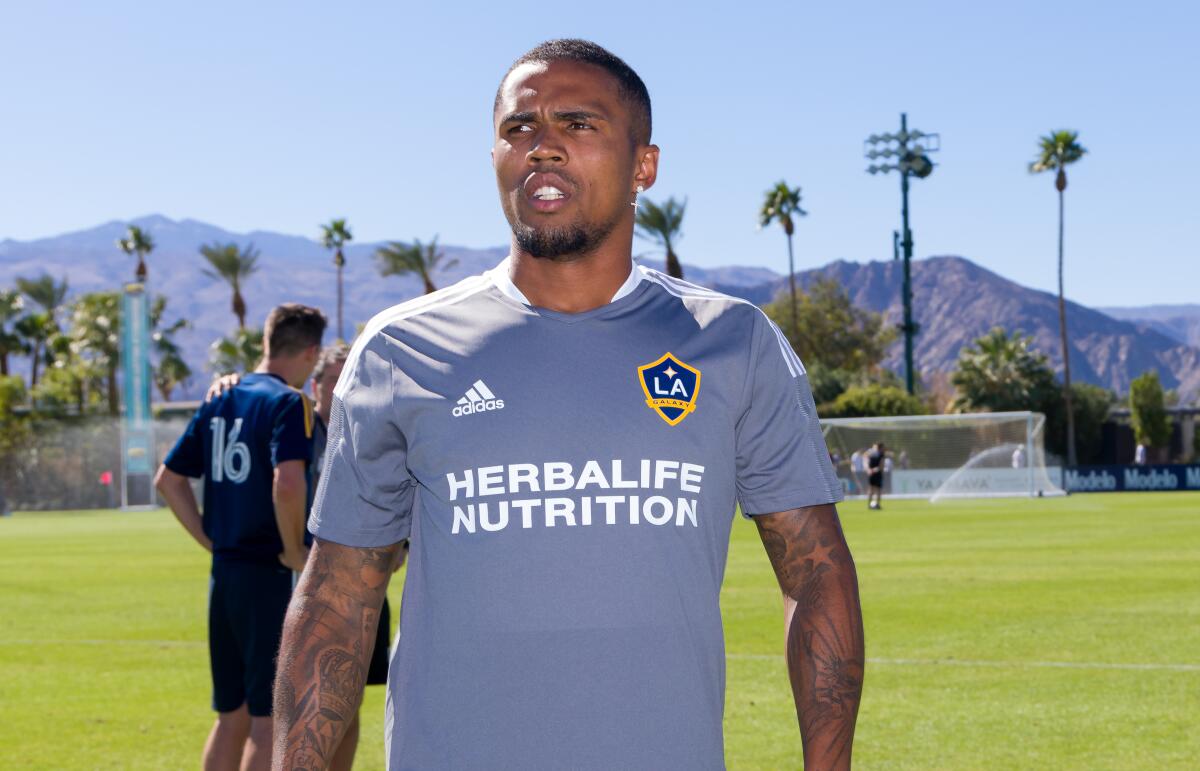
- Share via
Douglas Costa knew little more than joy and accomplishment during the six seasons he played soccer in Ukraine.
He scored the first European goal of his stellar career in the Donbass Arena in Donetsk 12 years ago next month. He was a shy teenager, newly arrived from Brazil then and Shakhtar Donetsk, his bold and cocky club, was cruising to its fourth Ukrainian title in six seasons.
He was a rising star in a constellation full of them.
“Ukraine,” he said, “is in my heart.”
That heart is now breaking.
The modern 50,000-seat stadium where Costa once played has been abandoned, twice damaged by artillery fire. The streets he once walked in Donetsk, about 60 miles from the Russian border, are abandoned too, many of the residents having been evacuated in anticipation of a Russian invasion.
The EU’s top diplomat says that ‘Russian troops are on Ukrainian soil’ — but that it was not yet ‘a fully fledged invasion.’
An estimated 190,000 troops, backed by tanks, war planes and gunboats plying the waters of the Black Sea, are poised on that border now, ready to invade Ukraine.
That invasion may have already begun.
Russian President Vladimir Putin on Monday ordered troops into separatist-held parts of eastern Ukraine, including Donetsk, for what he called a “peacekeeping” mission that many view as the next inevitable step toward a war. The very existence of the country Costa once called home, the country that gave him and so many other great players their start in professional soccer, hangs in the balance.
From half a world away Costa, who joined the Galaxy in Southern California two weeks ago, follows the news closely, his joyful memories giving way to fear.
“I am very sorry because it is a country that has given me many things,” he said in Spanish, his second language. “The opportunity to play in the Champions League. The opportunity to change my family’s life. So there are feelings for all Ukrainians because they did everything for me.”
A lot has happened since then. Costa went on to win 10 more domestic league titles in the Ukraine, Germany and Italy and play in a World Cup for Brazil. But tensions were growing even before he left Ukraine.
“We can’t change everything. We can’t stop a war just because we are famous.”
— European soccer star Douglas Costa
The first conflict with Russia and Russian-backed rebels in 2014, during Costa’s penultimate season in Ukraine, killed more than 13,000 people and forced Shakhtar, once among the continent’s top 20 teams, to flee Donetsk, beginning a seven-year odyssey that has seen the club finally settle 700 miles away in Kyiv, a city that’s not even in the same time zone.
Many of the players on the Shakhtar roster have never been to Donetsk, which is now controlled by Kremlin-backed separatists who last week began evacuating much of the population to Russia in what some fear may be part of an effort to create a pretext for war.
Putin on Monday recognized that region, as well as neighboring Luhansk, as being independent of Ukraine although both are well within that country’s borders.
Long before that Zorya Luhansk, a club with a rich history dating to its birth in a locomotive factory shortly after the Bolshevik Revolution, was also relocated, moving 250 miles from Ukraine’s eastern border to Zaporizhzhia. Two other teams, Tavriya and FC Sevastopol, can’t play in the Premier League at all since they are based in the Crimea, a territory occupied and annexed by Russia in the first conflict eight years ago.
The Ukrainian economy cratered in the wake of that invasion, leaving the country one of the poorest in Europe. At least 20 Ukrainian soccer clubs have either folded or been severely sanctioned since 2014, some teams have gone months without paying their players and staff and attendance has fallen nearly 70%, to 3,533 a game.
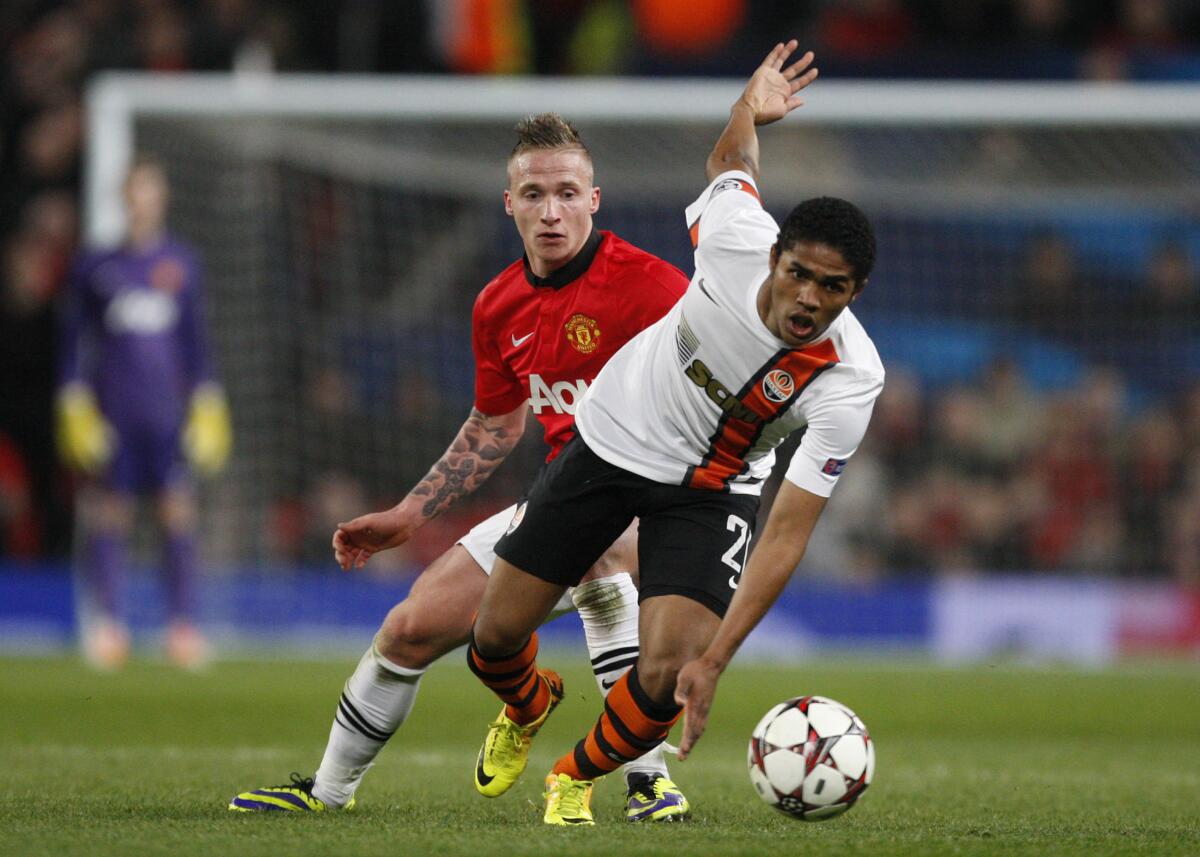
Shakhtar, chasing its fifth title in six seasons, leads the table after 18 games but the Premier League’s return from its 10-week winter break, scheduled for Friday, remains in doubt.
A country that once hosted a European Championship — five matches were played in the Donbass Arena — and a league that once won a UEFA Cup while nurturing the likes of Fernandinho, Willian, Yaya Touré, Henrikh Mkhitaryan and Jordi Cruyff, are both shells of their former selves.
The threat of another war and the reality of missed paychecks and small crowds has stopped the parade of foreigners, and the financial crisis has crippled the development of the next generation of young players. As recently as 2017-18 the league ranked ninth in the UEFA co-efficient, a mathematical formula that rates Europe’s 55 member countries. It is now in the middle of the pack, behind Moldova and Azerbaijan and one place ahead of Cyprus.
Douglas Costa, a Brazilian international who has played with three of the biggest clubs in Europe, has agreed to a deal with the Galaxy.
Ukraine’s national team, however, has somehow managed to thrive. It reached the quarterfinals of the Euros last year and is unbeaten in World Cup qualifying heading into a playoff with Scotland next month. But there’s no guarantee the Ukrainian Premier League will survive another war.
And while there are far more important things to worry about than soccer, any disruption of everyday life should be regarded as a casualty of conflict.
It’s a tragedy that saddens Costa.
“I have good memories,” he said. “That’s where my life started to change. I started to meet important people too.”
It was where he became a millionaire, then a multimillionaire: His first contract at Shakhtar was worth just over $1 million a season, but when he left for Bayern Munich five years later, the transfer fee alone was $34 million.
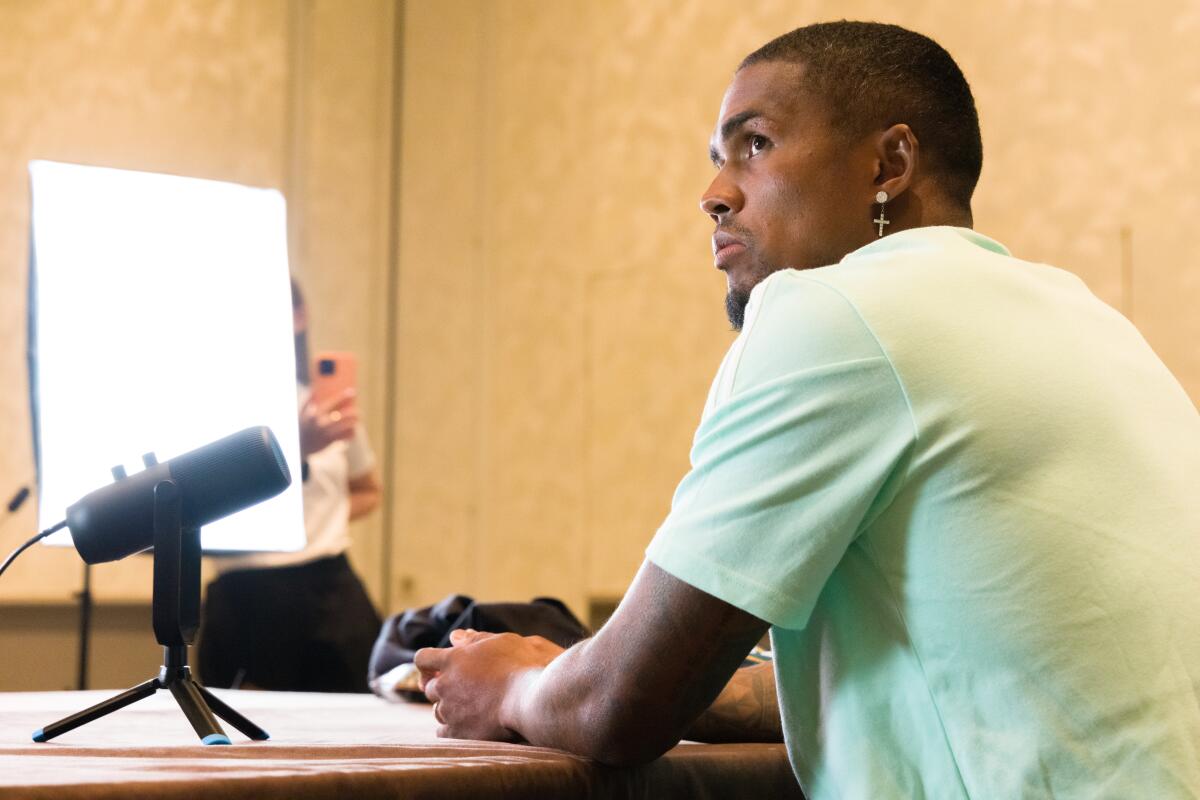
When he joined Italy’s Juventus in 2018, his value had grown even more: that deal was for four years and more than $45 million. Terms of his contract with the Galaxy have not been made public, but it will reportedly make him among the best-paid players in MLS.
“When I got there, I was young. I had only been playing soccer for five years,” he said of his move to Ukraine. “I started to do good things and then Bayern, then Juventus and I became an important player.
“But it all started in Ukraine.”
Now the city where he lived and played in is the center of the so-called Donetsk People’s Republic. The possibility of a third world war starting on the streets Costa once called home is not a remote.
The man who arrived in Donetsk as a teenager is 31 now, still soft-spoken and polite but more world weary and wise than he’d care to admit. He has no firm solutions for bringing about a peace.
Research establishes that German and British soldiers played soccer on the Western Front during a famed World War I Christmas truce.
“I don’t know,” he admitted sadly. “It is a political issue and we who are playing are not as informed. We try the best we can to help but it is not up to us. We can’t change everything. We can’t stop a war just because we are famous.”
But he hasn’t lost hope. If the Ukraine can turn a poor Brazilian into a multimillionaire overnight, there would seem to be few limits to what it can do.
“These are things that, over time and with everyone’s help, we can change,” he said. “But step by step. Not overnight.
“The truth is things change. And I hope Ukraine returns to what it was before.”

